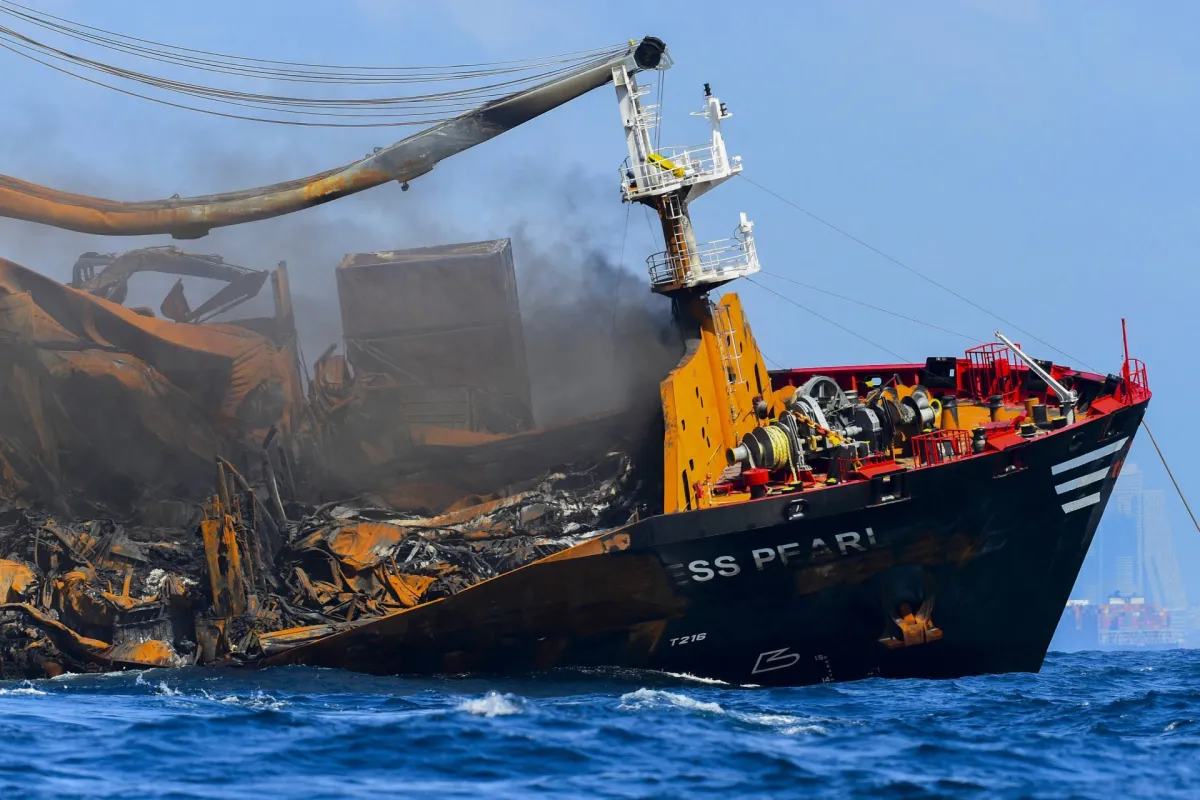The Disastrous Event
A colossal marine disaster has sent shockwaves through the maritime community, leading to a staggering fine of $1 billion against a major shipping company. The incident not only devastated marine life but also disrupted vital coastal ecosystems. It raises fundamental questions about shipping practices and environmental responsibility in global logistics.
Impact on Marine Ecosystems
The aftermath of the incident is heartbreaking, with dead marine life littering the shores. The toxic spill has thrown Sri Lanka’s delicate coastal ecosystems into disarray. Coral reefs, vital for biodiversity, face catastrophic threats, while fish populations may dwindle under continued contamination. Phytoplankton, the microscopic plants that play a crucial role in ocean health and global oxygen production, are also at risk.
What’s particularly alarming is that marine scientists caution that pollutants, particularly microplastics released during this disaster, can linger for years, infiltrating the food chain and potentially impacting human health. The ongoing harm to Sri Lanka’s marine environment underscores the importance of stricter regulations in shipping logistics.
Economic Repercussions for Local Communities
The ruling highlighted the economic fallout for communities reliant on fishing, which is their primary source of livelihood. With waters contaminated, the risks skyrocket, and the effects stretch beyond immediate financial loss. Disruption of fishing practices can lead to long-term economic instability in the region. It’s like throwing a stone into a pond, creating ripples that reach far beyond the initial impact.
Steps Toward Restoration
The $1 billion fine aims to fund initiatives for restoring and protecting the affected marine and coastal environments. Although specific restoration plans are still under wraps, potential measures may encompass large-scale beach cleanups, habitat restoration, and fortified safeguards for shipping routes traversing sensitive areas.
On a broader scale, environmental advocates argue for stricter international shipping regulations, better tracking methods for hazardous materials, and accountability for polluters. These calls for action reflect a growing awareness of the environmental responsibilities accompanying logistical operations.
Individual Actions on Pollution
While large-scale environmental reforms are crucial, individual efforts also play a part. One significant action is to reduce reliance on single-use plastics, addressing the demand for materials that exacerbate ocean pollution.
Global Shipping and Its Future
As the world of logistics reels from the repercussions of this disaster, there is a pressing need for revolutionized shipping policies. The incident serves as a striking reminder of the delicate balance between progress in logistics and environmental stewardship. With ongoing discussions about tighter regulations and better practices, the shipping industry stands at a crossroads.
A Call for Stricter Regulations
Experts argue that changes in shipping practices could significantly mitigate risks to marine environments. Immediate action to enhance regulatory frameworks governing shipping operations can lead to sustainable practices that protect our shared oceans for the future. The anticipated creation of more robust international regulations might significantly alter logistics dynamics, making environmental concerns a central focus.
Abschließende Überlegungen
While this catastrophic incident yields deeper understanding and discussions about shipping regulations, the lesson is clear: even a single error can have dire effects on marine life and the communities relying on its resources. The shipping industry must adopt a more environmentally conscious approach to avoid repeating such tragedies. GetTransport.com remains committed to facilitating the transport needs of individuals and businesses while advocating for environmentally responsible logistics solutions.
Wichtigste Erkenntnisse
- A $1 billion penalty highlights the significant financial implications of environmental disasters.
- The adverse impact on marine ecosystems emphasizes the need for stricter shipping regulations.
- Economic repercussions for local communities underscore the interconnectedness of environmental health and livelihoods.
- Restoration efforts focusing on eco-friendly practices can drive positive changes in logistics.
Schlussfolgerung
The shipping industry faces an imperative to change course and prioritize environmental responsibility in logistics. The recent disaster serves as a wake-up call, emphasizing that every action within this vast network impacts livelihoods and ecosystems alike. As countries and companies grapple with the consequences, platforms like GetTransport.com uphold transportation needs while promoting cost-effective and environmentally considerate logistics solutions. Readers can explore affordable, global cargo transportation options and benefit from the platform’s commitment to transparency and convenience. For your next cargo transportation, consider the convenience and reliability of GetTransport.com.

 Major Shipping Company Faces $1 Billion Penalty for Environmental Catastrophe">
Major Shipping Company Faces $1 Billion Penalty for Environmental Catastrophe">